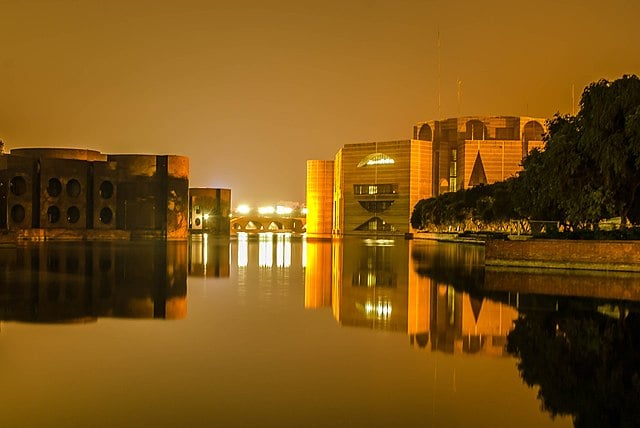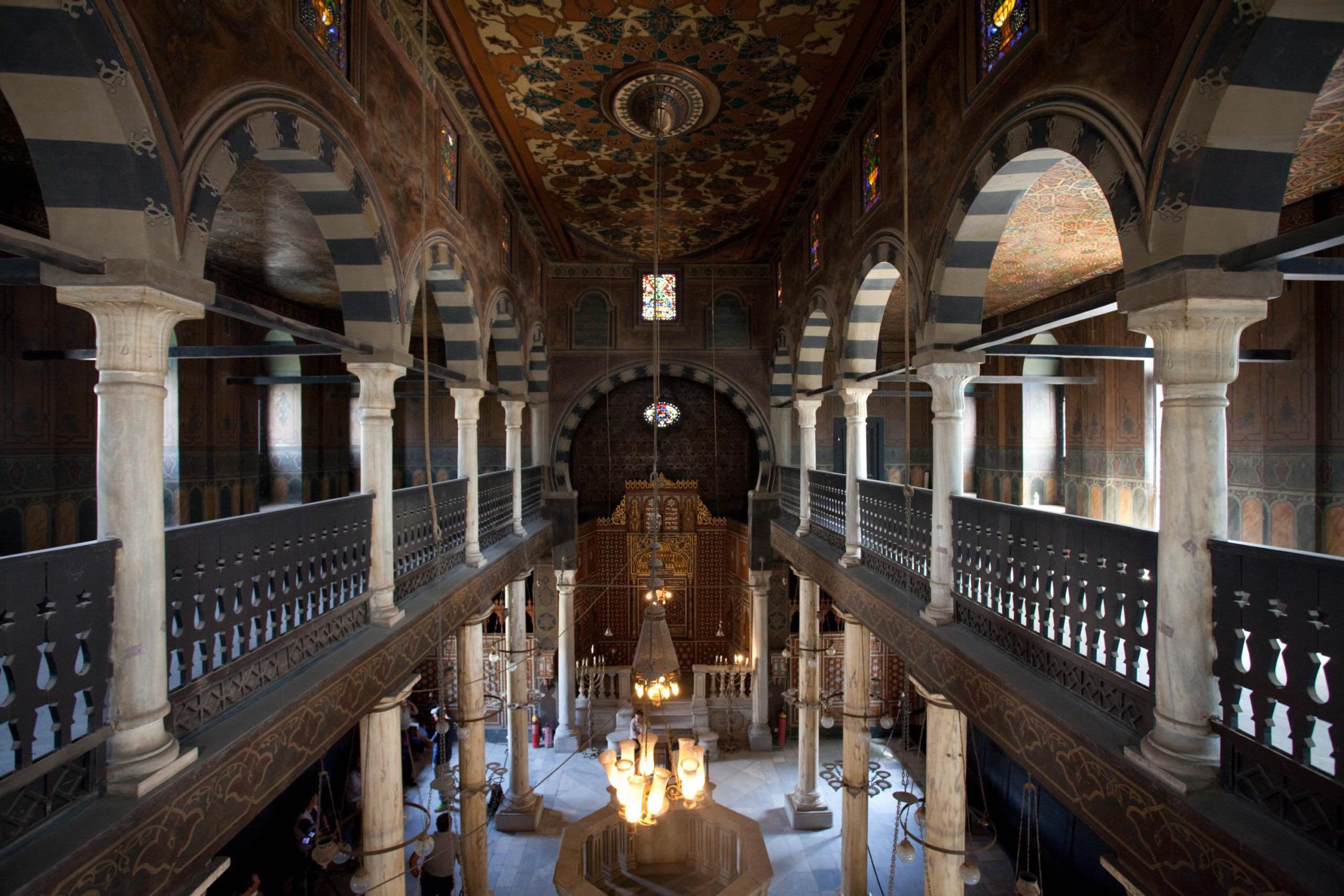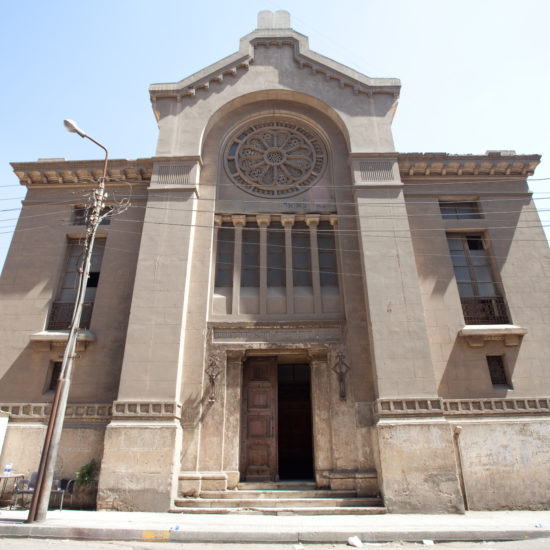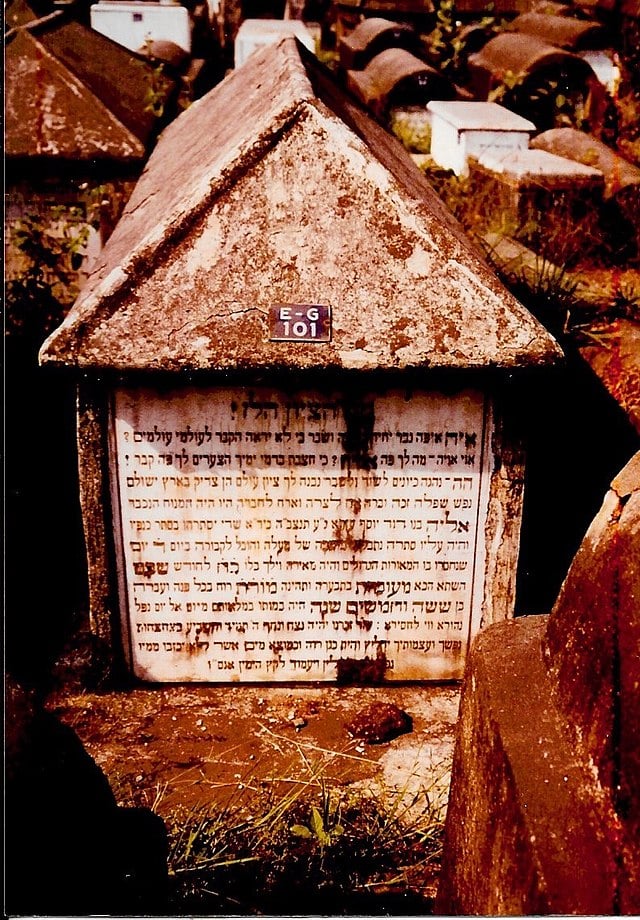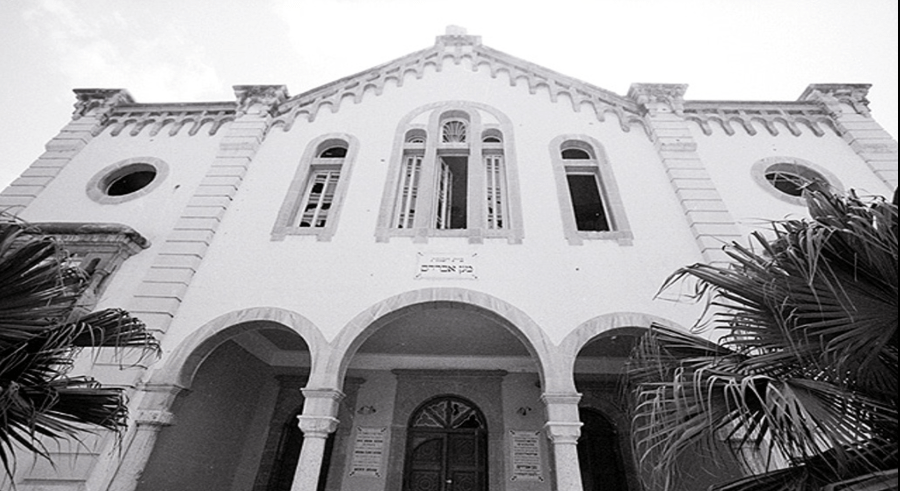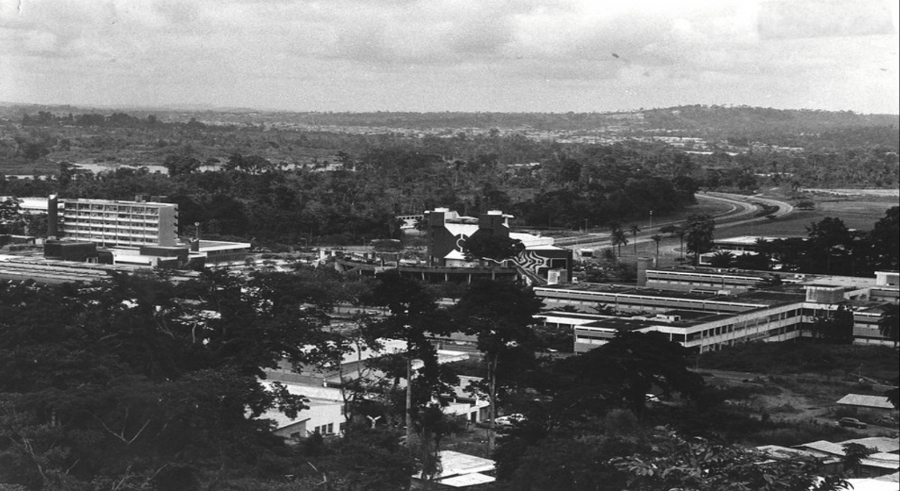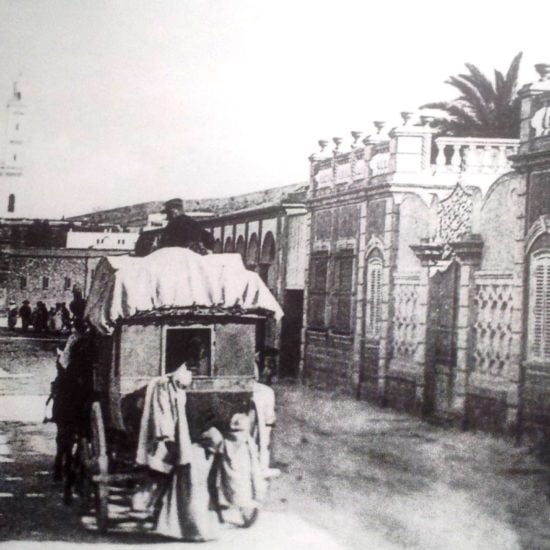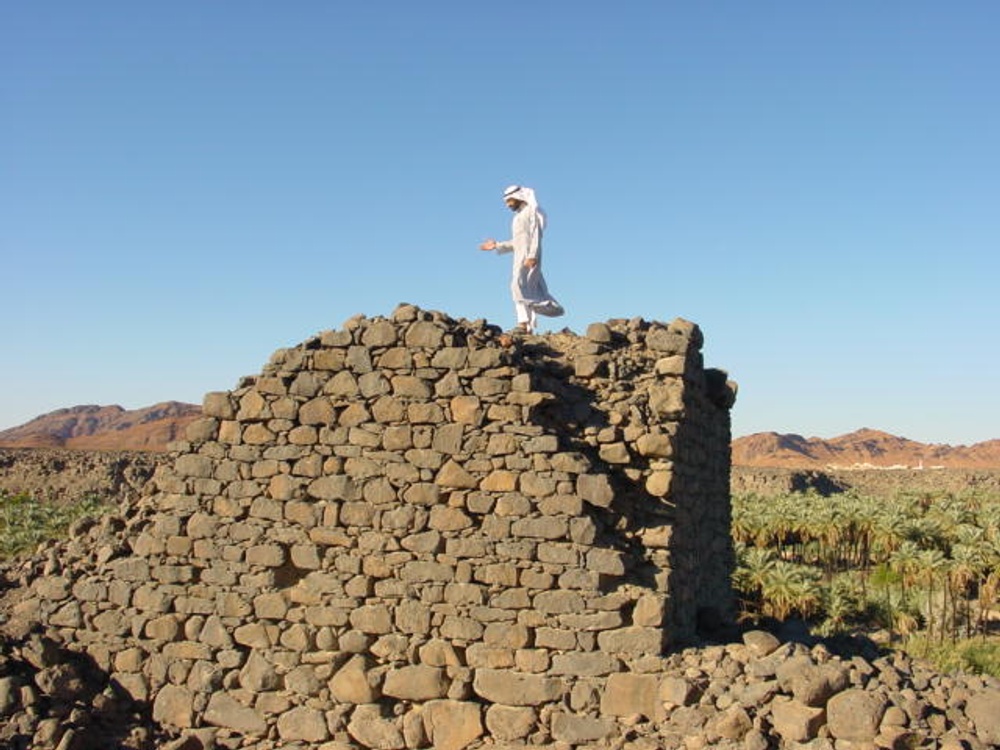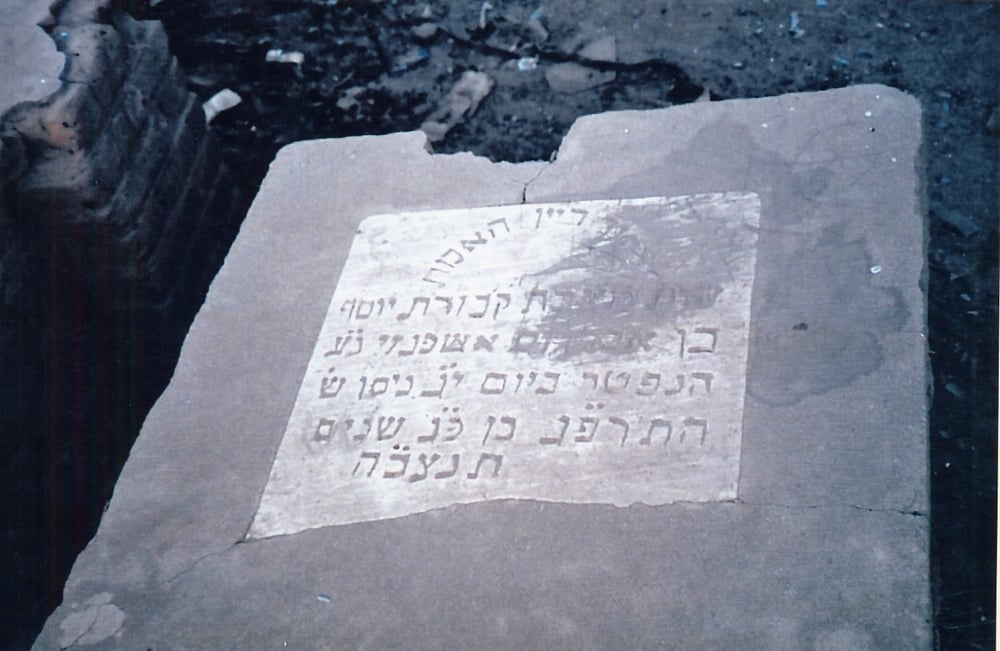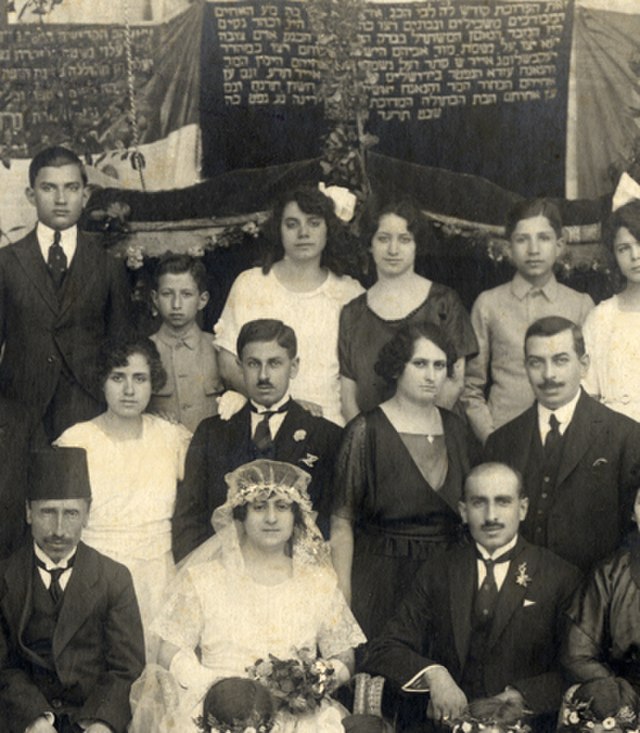At first glance, the Jatiyo Sangsad Bhaban (National Parliament House) of Bangladesh looks like something out of high fantasy or even science fiction. A monolithic, almost sculptural, concrete building, perforated by huge geometric windows, rises from an artificial lake in the heart of Dhaka like a mythical fortress or a monument left behind by aliens. Designed by American Jewish architect Louis I. Kahn and completed in 1982, the building and surrounding area comprise one of the largest legislative complexes in the world. Kahn’s biographer described the building as “one of the twentieth century’s greatest monuments, and…without question Kahn’s magnum opus.”
Archives: Directory listings
Directory listings
Jewish History of Egypt
In the summer of 2017, a Diarna research team to Egypt was granted unprecedented access to digitally document 13 synagogues as well as other Jewish historical sites. Most of these structures had been closed or otherwise off-limits, a status they held, in some cases, for decades. Follow in the footsteps of Diarna’s researchers as you explore this online exhibit of synagogues in Cairo and Alexandria, poignant reminders of Egypt’s enduring Jewish cultural heritage.
Discover Urmia and Hamadan
Urmia was home to Aramaic speaking Jews who referred to themselves as Nash-Didan. Some graves and tombstones are still extant. The wall around the cemetery was built a few years ago by a local family. Urmia also had three synagogues, (one of which was the Kalimiyan Synagogue) and an Etihad (later Kalimiyan) school.
Jewish Baghdad
An elementary school for boys founded in 1931 by Masuda Yosef Saleh, replacing the Karem Ha-Yeladim School.The school also housed prayer services on Shabbat and Holidays. In 1939 the community provided the school with a new buildling, and by 1950 the school had 393 students, 12 teachers, 9 classes. It is currently a storehouse. In 2016, the Hebrew sign which said כנסת מסעודה סלמאן was still in-situ.
The Jews of Beirut
Its stucco roof is shattered. The Ten Commandment tablets at the building’s peak have crumbled and graffiti has been spray-painted in the sanctuary. Nonetheless, the Maghen Abraham Synagogue still stands, having survived more than a decade of Civil War street battles and the near-complete disappearance of Lebanon’s Jewish community. Visible from the sea amidst shiny skyscrapers, the abandoned synagogue is a decaying monument to Beirut’s once-thriving Jewish Quarter, which it once anchored. One of over a dozen synagogues that existed in Beirut—and one of several abandoned synagogues that remain scattered across Lebanon—Maghen Abraham may yet be restored if funds can be raised. In the meantime, its shell evokes both a destroyed past and a ruinous future waiting to be fulfilled.
University of Ife
The University of Ife was constructed by the Israeli architect Arieh Sharon between the years 1962 and 1972 with the assistance of architects Eldar Sharon and Harold Rubin. The university is considered one of the premier academic institutions in Nigeria and has produced major award-winning scholars and researchers. The architectural design sets an African sensibility within a European context and effectively underscores the mission of the university. As Sharon stated, “form follows function.” The language developed on the Nigerian campus thus integrated local artistic and other motifs in Modernist buildings.
The University of Ife: The University of Ife, today known as the Obafemi Awolowo University, was established in 1962 in Ile-Ife, Osun State, Nigeria. This public university is now considered one of the best universities in Africa, and is home to Nobel Laureate and National Merit Award winning staff members, United Nations publications, and the buildings of Israeli architect Arieh Sharon. Structurally, the University of Ife includes a central campus (with academic, administrative, and service areas), student residential area (with 10 undergraduate hostels and a postgraduate residence hall), staff quarters, and a Teaching and Research Farm.
Jewish Sites in Karachi
In the 1920s and 30s, the Edward House was the place to be in Karachi. More specifically, the Café Grand, located on the ground floor of the immense building constructed by Iraqi Jewish architect Moses Somake. Run by confectioner Herbert Cumper, Café Grand was a ritzy, jazzy venue known for its delectable menu and frequented by Karachi’s most famous artists and writers.1 The café closed decades ago, and these days the building now houses offices, shops, and a few residential blocks. Until 2000, one of Café Grand’s signs remained on the building, a last reminder of former glories.2
Moses Somake Although Moses Somake’s buildings are among the most famous and recognizable in Karachi, little is known about the architect who designed them. Somake was born on June 6, 1875, possibly in Lahore. Sources describe him as an Iraqi Jew, but differ as to whether he was born in Iraq or was of Iraqi heritage but born in India. He spent most of his life in Karachi before emigrating to England in the mid 1940s, and died on April 6, 1947.3 During his years in Karachi he designed over a dozen buildings, including mansions, hotels, and a mosque that was never built.4 Many of the buildings still remain: some, including the Karachi Goan Association Hall and the BVS Parsi School, still fulfill their original purpose, while others are neglected or have fallen into disuse. Even the buildings that are virtually abandoned are still recognized as some of Karachi’s most beautiful and striking landmarks, emblematic of a style described as “hauntingly beautiful”.5 Somake’s buildings preserve the past through their uses as well as their designs, recalling the greater religious diversity that existed in Karachi in the early 20th century, when a Jewish architect could be commissioned to design a mosque, a building for a predominantly Christian club, and a school for Zoroastrian students.
Discover Khaybar
Just off the main road heading north—about 95 miles outside of Medina—are the remains of Khaybar, a striking oasis that is home to the “Masada of Arabia.” At the summit of what is still known as the “Mountain of the Jews” is the Jewish fortress of Qamos. Essentially forgotten by Jews today, this ancient center of Jewish life is remembered throughout the Muslim world, and particularly by Shia, as the scene of a pivotal battle in early Islamic history.
Khaybar was divided into three districts—Nataah, Shaq, and Katibah—each of which contained several villages and citadels, often perched on the high ground overlooking the extensive date palm groves, corn fields, and other crops below. The region’s volcanic soil and moderate climate made it well-suited for agriculture. In addition to cultivation, the residents were accomplished traders, metal workers, and silk garment producers. These highly prized skills enabled Khaybar to thrive and amass great wealth, especially in comparison to the other communities of the Hijaz.
Jewish Cemetery in Khartoum
The Jewish cemetery in Khartoum, Sudan. Continue reading for the gripping story of how this site came to be found and digitally documented and preserved by Diarna volunteers. According to an old Jewish legend, Moses spent forty of the years between his initial flight from Egypt and his eventual return to deliver the Israelites as a General and ultimately King in Kush, a territory due south of Egypt that is part of present-day Sudan. Moses was thus, arguably, the first Sudanese Jew. What may be surprising to some is that he was not the last.
Jewish Syria
An ancient site, Aleppo’s central synagogue housed the legendary Aleppo Codex (one of the oldest complete texts of the Hebrew Bible) but was looted and burned by rioters in 1947. Despite the destruction done by the rioting, the Syrian Jewish community raised funds during the early ’90s to partially restore the building which was placed under the protection of the Syrian government. The synagogue’s current condition is unknown.
Origins: According to legend, the foundation of the synagogue was originally built by King David’s general Joab in 950 BCE after he conquered the city (known in Hebrew as Aram Soba). The oldest surviving manuscript found was dated to the year 834CE. The synagogue also features open-air courtyards that were used for services during warm weather, and seven arks, one of which was known as Elijah’s Cave and was used to store the Aleppo Codex for 500 years.
